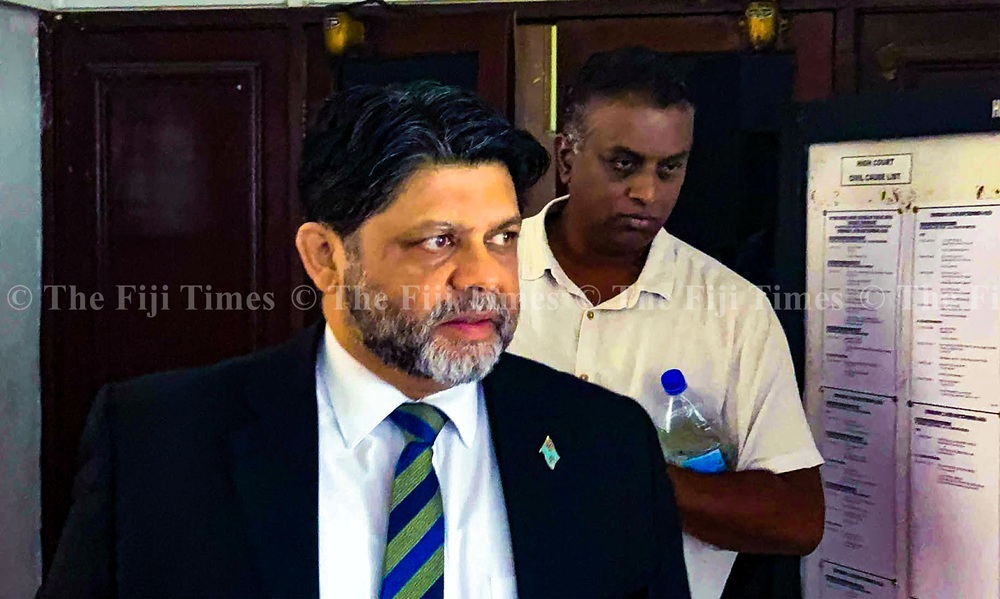Two Fijian Elections Office (FEO) employees told the High Court that a $55,944 tax reimbursement to former supervisor of elections Mohammed Saneem was “quite unusual” for an employer to pay on behalf of an employee.
FEO director of Corporate Services Sanjeshwar Ram and financial controller Romika Sewak both testified they had never encountered such a situation before.
Two documents at the centre of the trial were Mr Saneem’s two deeds of variation (DoV). The first DoV was signed by then prime minister Voreqe Bainimarama on June 30, 2022, approving a salary increase to $350,000 for Mr
Saneem and other benefits backdated to January 15, 2021, the date of his appointment.
After receiving the first DoV, Ms Sewak said Mr Saneem insisted on the processing of the back pay immediately but they informed him that it would occur in the next pay cycle.
Chief Justice Salesi Temo was told the pre-tax backpay totalled $168,847.01. After approximately $43,000 in taxes were deducted, Mr Saneem received $114,492.74 on July 6, 2022.
Ms Sewak said Mr Saneem was upset and repeatedly called her questioning the substantial tax amount, and on July 10 he asked for the return of his DoV. She kept a copy secured in her locker as “it seemed wrong since the payment was processed as per the DoV, and now he was asking for it back”.
Soon after, a second DoV was presented, signed by then-acting prime minister Aiyaz Sayed-Khaiyum.
It included a new clause stating that the Government would cover any additional tax from January 15, 2021 until December 31 of that year.
Ms Sewak said she expressed her concerns to Mr Ram, who had just returned from a three-week suspension, regarding the tax reimbursement of $55,000.
For this DoV, the FEO had to use its funds to transfer $2000 to Mr Saneem’s M-PAiSA account and $53,000 to his HFC account. Despite also raising her concerns with Mr Saneem, she stated that he was only interested in receiving the payment.
Even with the defence’s documentary evidence presented in court, Mr Ram maintained, based on his experience and knowledge, that it is unusual for an employer to pay an employee’s taxes, adhering to the belief that individuals should handle their own tax obligations. Ms Sewak will be cross-examined today.



